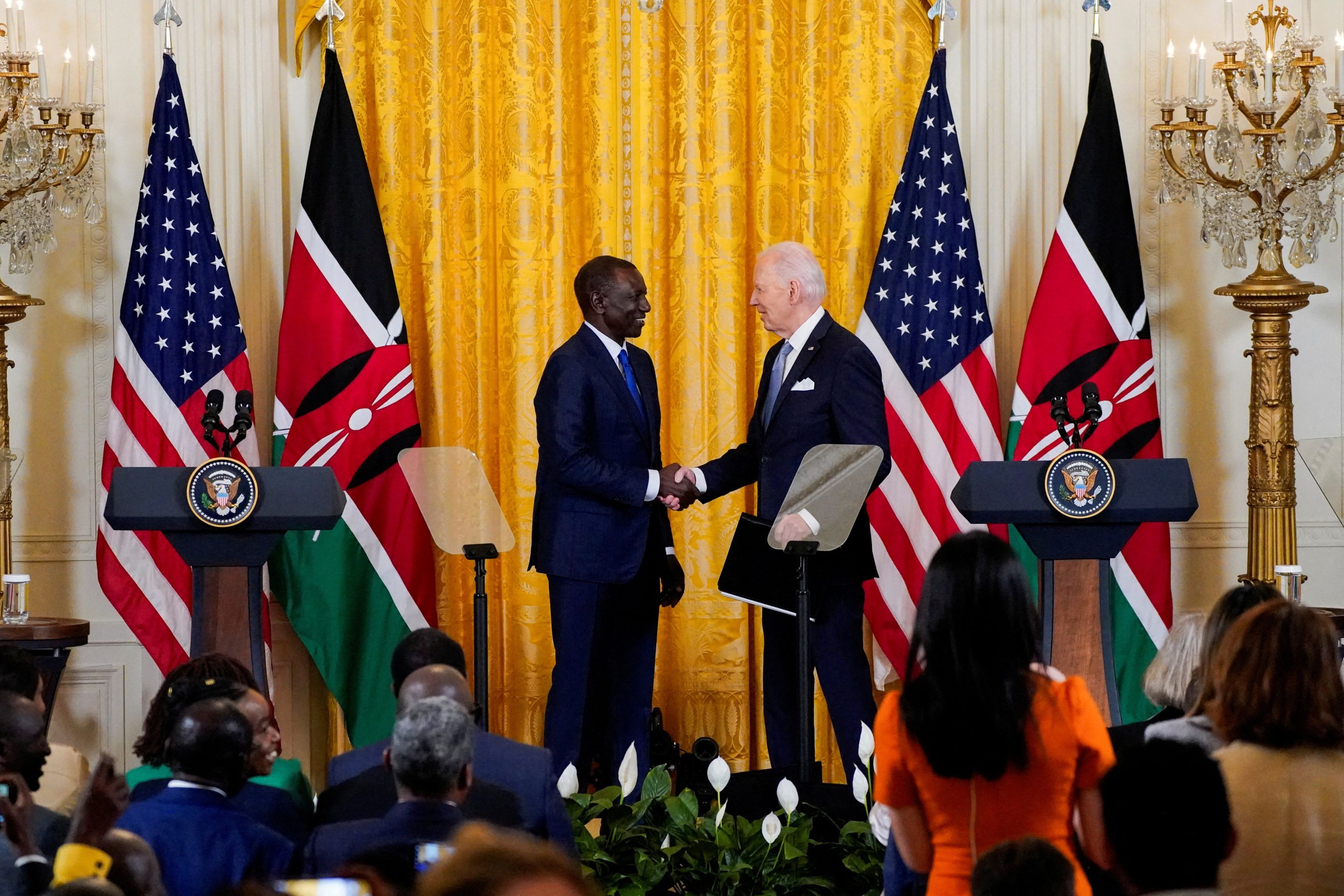Summary:
- In an exclusive interview, the White House discusses the significance of Kenya as the first African state visit under President Biden’s administration. Key points include Kenya’s global engagement, its peacekeeping role in Haiti, and anticipated outcomes spanning technology, climate, democracy, and healthcare.
The White House has strategically selected Kenya as the destination for its inaugural state visit by an African leader, citing various compelling factors. At the forefront of this decision is Kenya’s burgeoning prominence on the global stage, underscored by its proactive engagement, notably in offering personnel for a United Nations peacekeeping mission to Haiti, a move poised to manifest imminently.
In anticipation of Kenyan President William Ruto’s forthcoming visit to the White House, VOA White House correspondent Anita Powell engaged in a substantive dialogue with Frances Brown, the newly appointed director for African affairs at the National Security Council. Their discourse traversed an array of pivotal themes spanning technology, climate stewardship, debt alleviation, democratic principles, healthcare, and beyond.
The interview has been meticulously curated for conciseness and lucidity, distilling intricate nuances into digestible insights.
President Joe Biden’s hosting of Kenyan President William Ruto signifies a momentous diplomatic juncture. Why Kenya, and what tangible outcomes can stakeholders anticipate?
Kenya emerged as a preeminent choice for multifaceted reasons. Firstly, the evolving Kenya-U.S. partnership transcends regional confines, evolving into a globally resonant alliance. This convergence is particularly conspicuous in shared pursuits concerning climate resilience, debt restructuring for developing economies, and collaborative security imperatives.
Secondly, the foundational bedrock of democracy underpins the profound camaraderie between our nations, fostering robust people-to-people connections.
Thirdly, both Kenya and the U.S. espouse a synergistic approach, enlisting private sector ingenuity to tackle pervasive global challenges. Consequently, the anticipated deliverables span diverse domains encompassing technological innovation, renewable energy proliferation, climate adaptation strategies, debt mitigation initiatives, democratic fortification, bolstering interpersonal ties, and healthcare advancements.
Kenya’s forthcoming involvement in peacekeeping endeavors in Haiti carries significant ramifications. Why does this initiative resonate profoundly with the administration?
The administration warmly embraces Kenya’s proactive stance in spearheading a multinational security support mission in Haiti, emblematic of its altruistic ethos extending beyond regional confines. This endeavor epitomizes collective problem-solving on a global scale, underscored by meticulous planning involving policing experts from across the globe. It’s imperative to note the substantial U.S. contribution of $300 million towards this noble cause, underscoring our unwavering commitment.
Could the state visit yield additional security accords between the two nations?
Anticipate noteworthy developments in the realm of security cooperation, underscoring its pivotal status in bilateral relations.
Would these agreements primarily address threats emanating from Somalia or extend to other East African regions?
While historical collaboration on Somali affairs remains robust, envisage security-centric pronouncements transcending traditional realms, reflecting dynamic geopolitical exigencies.
The phased withdrawal of U.S. troops from the Sahel and the “Coup Belt” engenders apprehensions. How does the administration perceive security dynamics in the Sahel amid burgeoning Russian influence?
The orchestrated withdrawal from Niger aligns with our overarching counterterrorism strategy, reflective of evolving geopolitical realities. Notwithstanding, heightened vigilance persists amidst democratic regression globally. The administration remains steadfast in championing democratic values, exemplified by collaborative initiatives aimed at fortifying democratic institutions across Africa.
Trade dynamics, including the future of the African Growth and Opportunity Act (AGOA), feature prominently. What’s the administration’s stance on fostering barrier-free trade with Africa?
President Biden unequivocally prioritizes AGOA’s reauthorization and modernization, recognizing its catalytic role in fostering mutual prosperity. While congressional deliberations dictate the trajectory, the administration fervently advocates for expeditious action to ensure continuity and efficacy.
The impending renewal of the President’s Emergency Plan for AIDS Relief (PEPFAR) underscores healthcare imperatives. How does the White House perceive PEPFAR’s nexus with national security?
PEPFAR stands as a cornerstone of our humanitarian commitment, transcending partisan divides. Its pivotal role in safeguarding public health across the African continent underscores its indispensability. The administration steadfastly advocates for its reauthorization, cognizant of its enduring impact.
Speculation abounds regarding President Biden’s prospective visit to Africa. Could you shed light on potential itineraries?
While refraining from unveiling forthcoming presidential travels, President Biden’s unwavering commitment to the continent is resoundingly evident. Notably, Kenya’s elevation as the inaugural state visit recipient outside the G20 ambit underscores this resolve. Moreover, a litany of high-profile engagements and advocacy efforts underscore our enduring partnership with Africa.
As you embark on your tenure at the NSC, what priorities guide your stewardship?
My tenure at the NSC is characterized by a dual commitment to advancing President Biden’s affirmative agenda and expeditiously implementing seminal strategies outlined in the Sub-Saharan Africa Strategy and the African Leaders Summit. This entails a delicate equilibrium between proactive agenda advancement and adept crisis management, epitomizing our steadfast commitment to Africa’s prosperity and stability.

